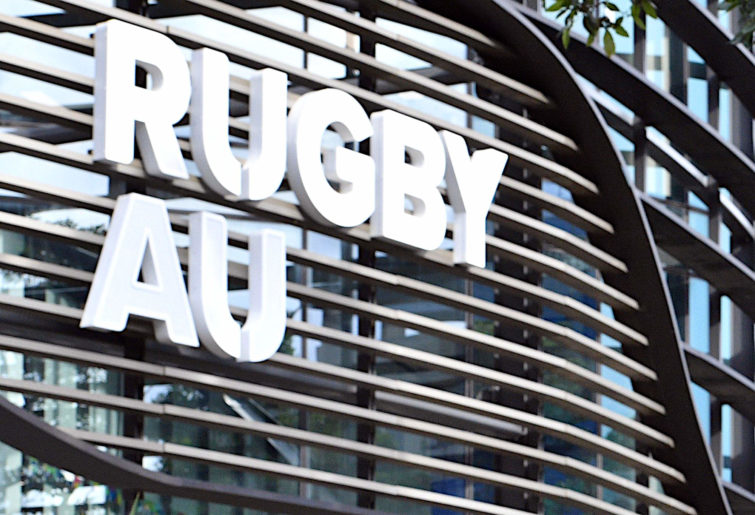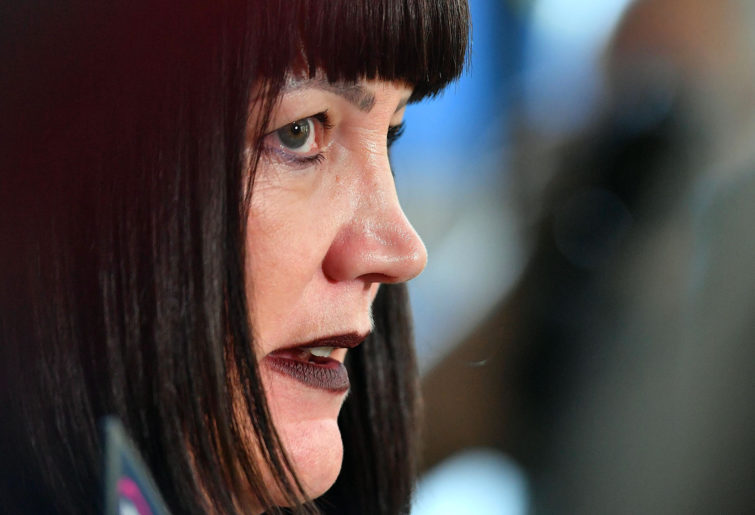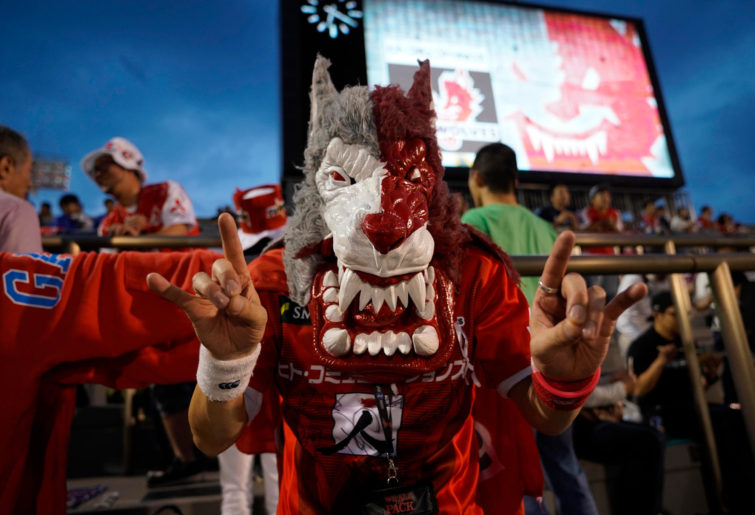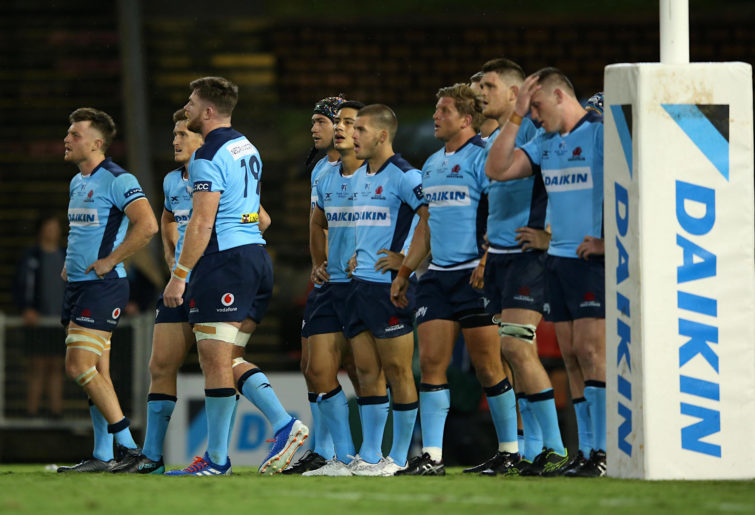It is no secret that Australian rugby union is in trouble.
In fact, it has been in trouble for over ten years and it seems nearly every conversation I have about the state of the game ends up with everyone agreeing that it’s a bloody mess – which it is.
Even the Sydney Swans chairman Andrew Pridham recently commented to The Age: “If we don’t continue the grassroots development eventually you could become rugby union”.
Ouch, jeez, kick us while we are down, why don’t you? Truth hurts, I guess.
There has been a relentless list of issues for stakeholders to deal with such as poor administration, financial mismanagement, poor performance and lack of leadership to name only a few. The cacophony of problems has led to fan engagement and crowd attendance dwindling to laughable levels and has pushed the sport to the brink of the abyss.
Enter the coronavirus epidemic. The epidemic has highlighted the structural, economic and social problems in the world at large, rugby included.
Australian rugby was already perched so precariously on the edge that a slight breeze would have been enough to push it to face financial ruin, let alone a worldwide pandemic.
On face value this may seem to be terrible news for the three rugby supporters left in Australia and in the short term it is.
Massive job losses, wage cuts and cancelled competitions are extremely hard losses to bare after so many years of bad news, however, in the long term this could be just the thing rugby needs to once again to be a relevant, engaging and financially viable sport in Australia.
The opportunity here is to rebuild the sport from the ground up with new goals that are aligned to the entire rugby community and new structures that are more efficient and effective.

(Saeed Khan/AFP via Getty Images)
So many times over the last ten years in Australian rugby, changes were made to address the glaring issues. However, none of them changed the direction of the sport as a whole.
The dropping of the Western Force, the development of better interstate engagement channels and the introduction of new leaders were all supposed to help steer the ship into new open waters but really it didn’t change diddly squat.
This is because to make the massive structural changes needed to change the direction of the sport required the support and effort of every level of the rugby community from the grassroots to the Wallabies, as well as clear and fearless leadership from the top, but as we all know the disconnect between stakeholders and the lack of supported leadership meant that any changes were merely cosmetic.
So despite a few new parts being added over the years, the fundamental machine of Australian rugby remained the same. You can’t replace just replace the badge on a Datsun to a galloping horse and expect it to win the Le Mans. Hell, you can’t do anything to a Datsun to make it win anything. But I digress.
A complete new machines needs to be built from the ground up and we will never get a better chance than right now.
First I would like to say that none of this is a slight at the hard-working people of the rugby community in Australia or the many that have now lost their jobs or accepted pay decreases. These losses are terrible and their impacts far reaching, it is important that we continue to look out for each other and give support to those in the most need but the overall administration of Australian rugby needed to change.
Unfortunately, it seemed that most of the administrations failings were placed at the feet of former CEO Raelene Castle, which is supremely unfair. To right a ship in the state of Australian rugby takes large tracts of time to do effectively so the sample size to measure her effectiveness, particularly with the inherited problems, was simply too small.

(Saeed Khan/AFP via Getty Images)
On a side note, the vitriol and backstabbing in Australian rugby circles has to stop. The blame game is an easy game to play but it takes true grit to take the blame upon yourself for the good of the sport – something some ex-Australian players need to think about before highlighting problems without actually providing any solutions.
The mass culling of the administration means that a new structure and leadership team can be built that works for all the interest within Australian rugby but this can only happen with robust engagement with stakeholders as the new structures are formed.
First cab off the rank is what is most relevant now, Super Rugby. With Super Rugby AU (seems the marketing team for Australian rugby was the first to feel the cuts) kicking off this Friday, there will finally be some actual rugby to sink our teeth into but there is a bigger issue at play here – the SANZAAR partnership.
Let’s face it, the Super Rugby competition as it stood before the pandemic was a logistical nightmare, overly complex and losing relevance. It is simply unsustainable to host a competition where teams have to travel half way around the world to a game. Not only that, but the fact that teams got added and then dropped (like the Force, Sunwolves and Southern Kings) shows that it is a competition without a clear and concise growth plan.
The power balance is also out with the view that due to South Africa bringing in the majority of dollars meant that they really held sway over the competition’s direction and hence could impose their will upon negotiations.
There have been so many years of talks about South Africa aligning itself with the northern hemisphere and let’s just put it to bed and let them go. They do bring in the dollars as well as world-class competition but Australia needs to be in control of its own destiny.
The idea of an Asia/Pacific-focused competition like ‘Twiggy’ Forrest was trying to do in the west and as has been floated multiple times has to be the direction that the new leadership take to heart. Between New Zealand, Australia, the Pacific Islands and Asia there is a huge growth market. A cornerstone of this though is the inclusion of one or even a few Japanese teams.

(Photo by Toru Hanai/Getty Images)
Japan is a nation of over 126 million people and has just come off the back of a World Cup that created genuine excitement and expanded the profile of the game immensely in the country. This is where those lost dollars from a split with South Africa can come from.
Finally, this does not mean we end the relationship with South Africa. We still maintain the Rugby Championship and the talk of a yearly or bi-yearly comp where the top teams from club competitions in the northern and southern hemisphere play off in an elimination style tournament does have legs.
This feeds into the changing of goals for Australian rugby in general. It seems somewhere along the line we missed the best part of the game, which is in its community cultivated from the grassroots up. Instead we put our eggs all in one golden basket – the Wallabies – and with the results in recent falling by the wayside, so too did the game.
A symptom of this could be seen in all too many press conferences over the past while and that is referring to rugby as a product. Sure, the game is an entertainment product but it is really so much more than that and those at the top should know better. Referring to it as a product doesn’t connect the game to fans and misses the best components of the game. It is way more than a product.
The goal should be for rugby to support the grassroots as a priority and to make the game accessible to everyone. The Wallabies will be stronger for it and I still believe in the talent in Australia, just look at the schoolboy results in recent years.
Without local clubs having adequate support and indeed input into the strategic plan, it will fail. This is what Sydney Swans chairman Andrew Pridham was referring to. Without a solid foundation, it will all come crashing down.
Accessibility is the next step and this is a tough one. Traditionally rugby in Australia has been seen as elitist, and to be fair, it sort of is. It is played mostly in private schools (which is slowly lessening) and is most accessible to only those who have the money for pay TV. This perception needs to change.
Right now, the TV rights are a mess. Negotiations for a new TV deal were about to come to a point just as the pandemic hit and everyone had to go back to square minus one. The situation for rugby though is quite dire. Limited parties are interested in buying the rights, which led to Foxtel low-balling offers, although they did have cause as the figures for engagement are, to put it lightly, not the best.
This is why the development of a new competition it is so vital. With Super Rugby AU kicking off, it offers a great proof of concept to work from. Never mind Foxtel know this and are both promoting the game but also hiding it at the back of sports menus, no doubt to help with negotiations later on.

(Ashley Feder/Getty Images)
In order for this to be beneficial, though, we as fans need to turn up and tune in. This is the moment for every rugby fan in Australia to get on board and go to the games or watch at home, for without it there will be little ammunition for the administrators to bring to the negotiation table.
One thing we all have to remember here is that globally the game is growing. There are massive emerging markets in Asia and the Americas, there is a growing interest in women’s rugby and the sevens circuit still gives a great option for fan engagement.
This counters the narrative that it is the game itself that has become boring and less engaging for fans. This has led to a rise in a number of experimental laws, some of which are good and others not so much, but if you want to grow then you need people to understand the game and if it constantly changes then we have no hope.
The aim should not so much be on adding laws, rather it should be on simplifying them. Additionally, rugby is a game with a lot of grey area. If you really stuck to the law book then you have no hope of really ever finishing a game. Instead of focusing on the laws, the focus needs to be on the policing of them.
For example, scrums are a cornerstone of the game and a part that I love but the way it has been refereed over the last decade has allowed it to be a stopper in game continuity. Players are allowed too much time to get set and then resets happen too often with refs seemingly missing glaring opportunities to let the game flow.
Obviously there is a balance here. Player safety is paramount but you do not need two minutes to get set for a scrum and also if a scrum has collapsed and the ball is at the back then play on, don’t call it back. This is just an example but refs need to be given the training and support to really make a difference here.
With so much going on in the world it will be so good to see the Aussie teams come back into the spotlight this Friday. Really it represents the first slither of light before what I hope is a new dawn for rugby in this great nation.
What is it that they say – it’s always darkest before the dawn? Let us hope that these are the darkest times we will ever have to see, but there is always opportunity in the chaos.
Bring on the light!
































































































